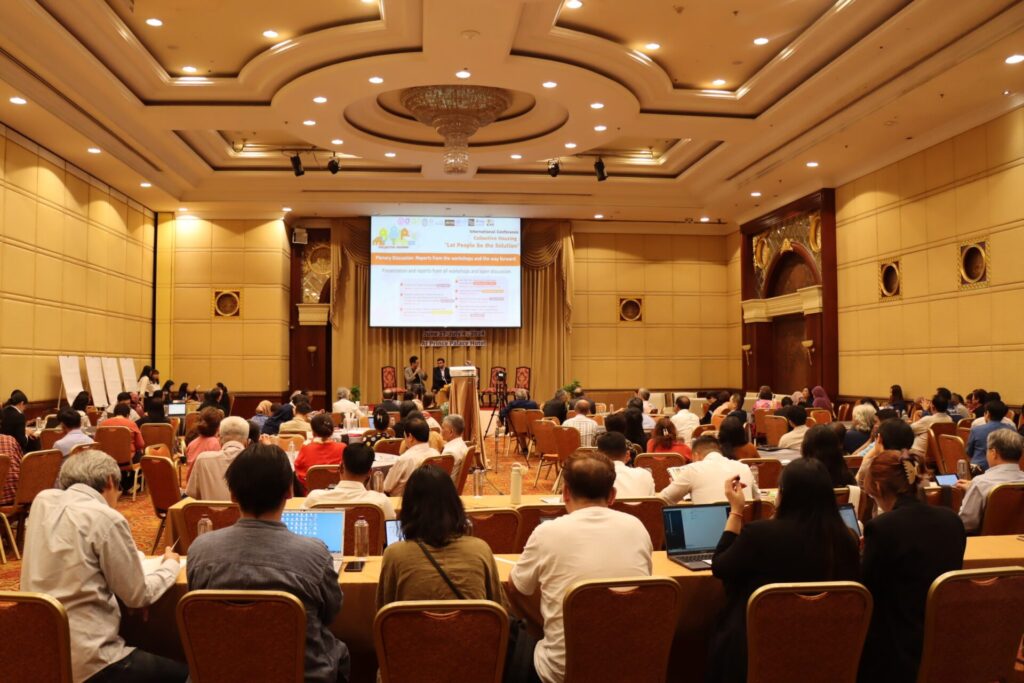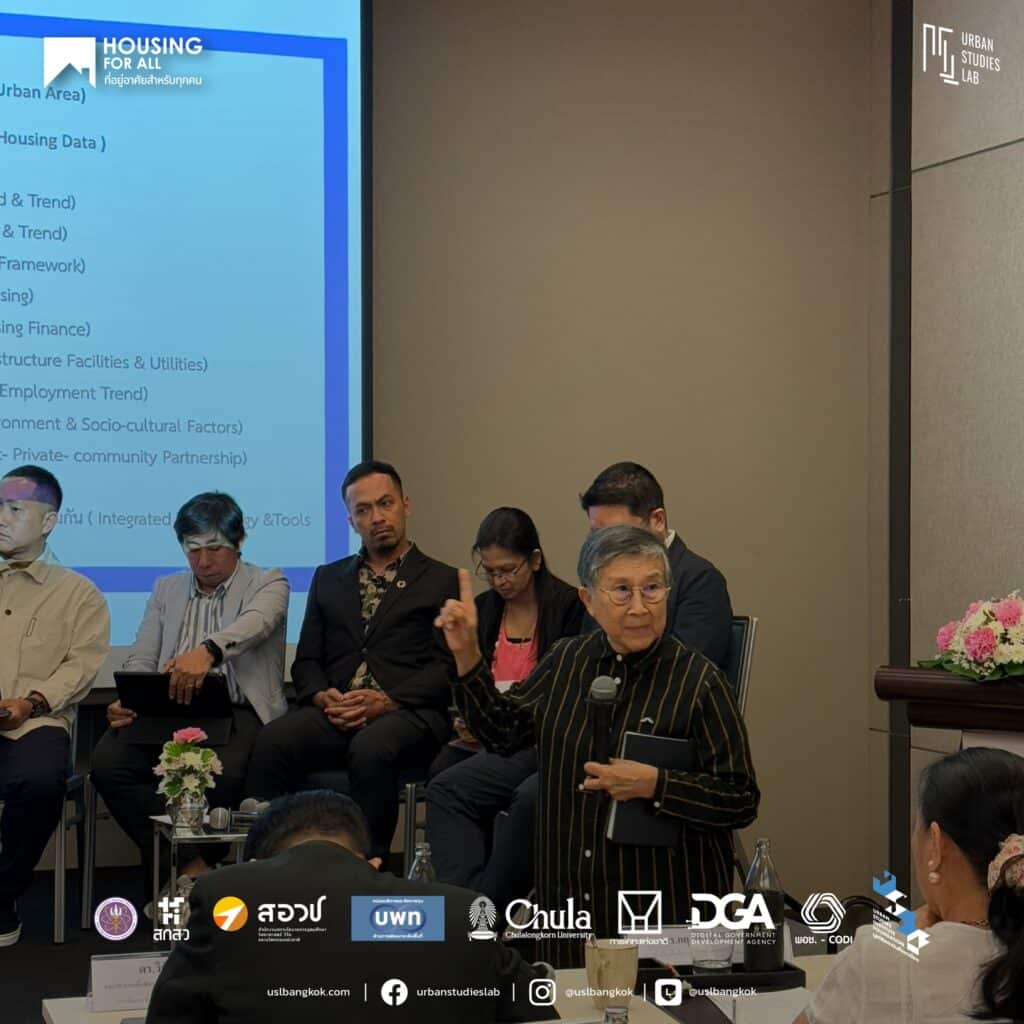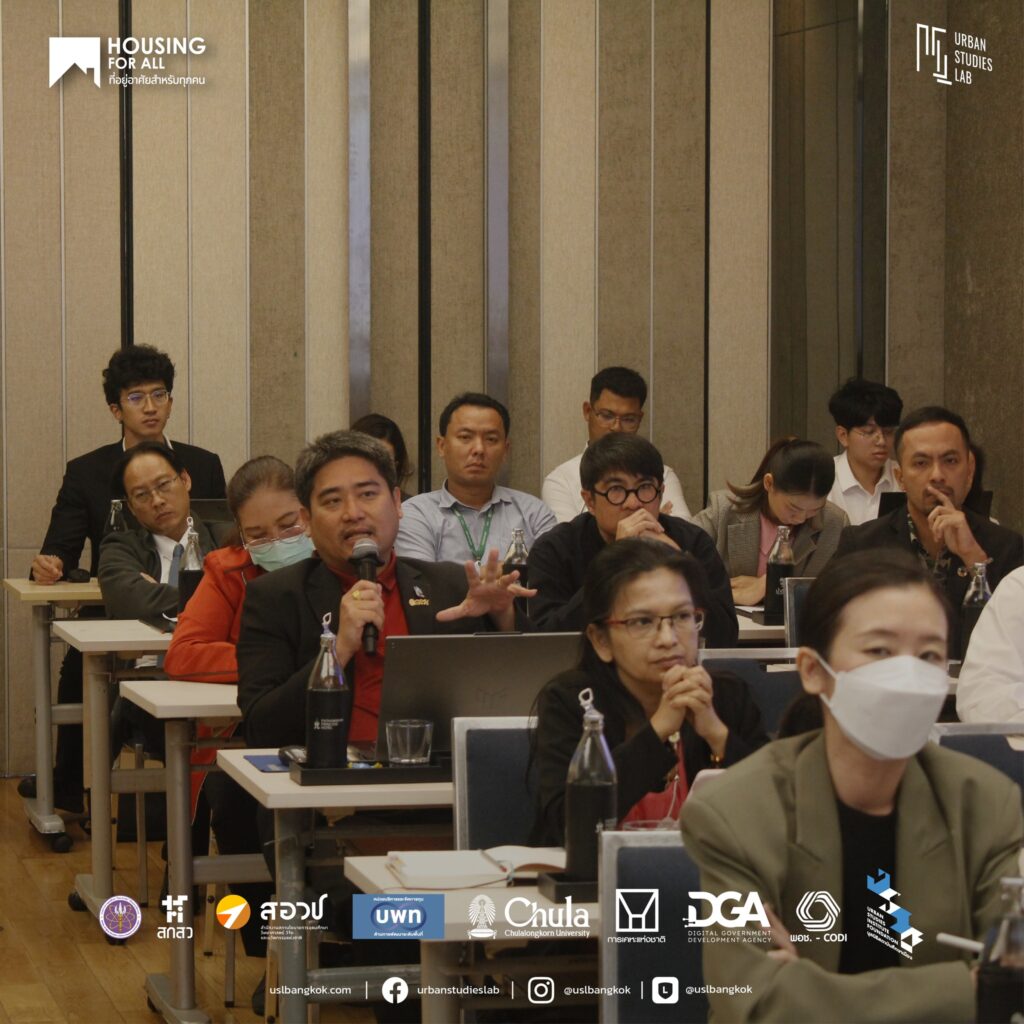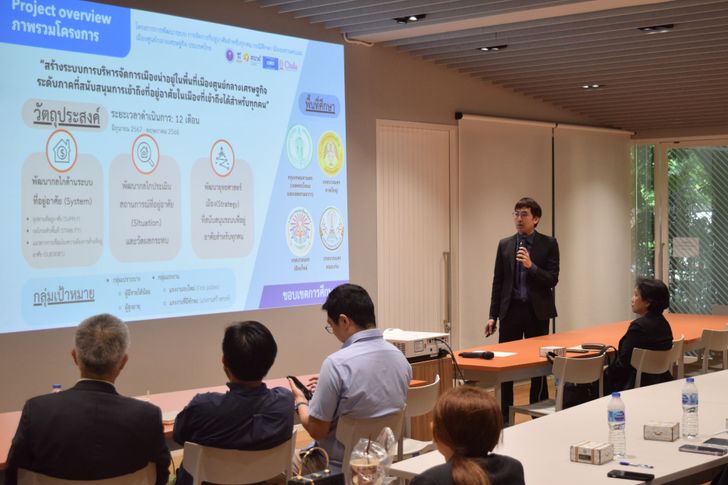Chulalongkorn University’s Collaboration for Sustainable Urban and Housing Development
Chulalongkorn University places great importance on sustainable urban development and the enhancement of citizens’ quality of life. The University actively collaborates with local authorities, government agencies, and private sectors in urban planning and city development to create inclusive, livable, and equitable urban communities. Leveraging its academic expertise, research capacity, and innovation, the University supports the formulation of policies, management mechanisms, and data-driven solutions that promote balanced and sustainable urban growth.
In the area of housing, Chulalongkorn University plays an active role in promoting access to quality and affordable housing for all groups, particularly low-income residents, the elderly, and urban workers. Through partnerships with government bodies and local communities, the University engages in area development, infrastructure improvement, and inclusive urban planning to ensure that everyone can live securely and enjoy a good quality of life in a sustainable urban environment.
Community-Driven Housing Development Partnership: Asia and International Knowledge Exchange
On 2–3 July 2024, the Community-Driven Housing Development Partnership—comprising government and local agencies, private sector representatives, civil society organizations, academics, educational institutions, experts, community leaders, and international organizations from over 13 countries across Asia and the Pacific—held an international knowledge exchange forum to share experiences on community-driven housing development. The event highlighted effective mechanisms and key factors that enhance urban and social development and quality of life, emphasizing the central role of communities in the development process.
The event was co-organized by the Community Organizations Development Institute (CODI) under the Ministry of Social Development and Human Security, Asian Coalition for Housing Rights (ACHR), Habitat Development Foundation, College of Interdisciplinary Studies, Thammasat University, Department of Housing, Faculty of Architecture, Chulalongkorn University, Arsom Silp Institute of the Arts, and the Community Architects Network (CAN), with support from UN-ESCAP, UN-Habitat, International Co-Habitat Network, Development Planning Unit, University College London, and Habitat for Humanity.
The event was part of the International Conference on Collective Housing Development for Low-Income Communities, held in Thailand from 1–4 July 2024, under the theme “The Answer Lies in Communities: Leaving No One Behind, Eradicating Poverty, and Building Strong People and Communities — The Key to Sustainability.” The conference focused on “Collective Housing” as a key approach to community-led urban development.
[ https://www.thaipost.net/public-relations-news/615178/ ]
Project: Housing for All — Developing a Comprehensive Housing Management System for Everyone (Case Study: Metropolitan and Economic Hub Cities in Thailand)
The Urban Studies Institute Foundation (USI), in collaboration with the Faculty of Architecture, Chulalongkorn University, implemented the project “Housing for All: Developing a Comprehensive Housing Management System for Everyone”, supported by the Program Management Unit on Area-Based Development (PMU-A) in the fiscal year 2024.
Recognizing housing as a fundamental factor affecting people’s lives, the project addressed persistent inequalities in housing accessibility, particularly for vulnerable groups such as the elderly, low-income earners, and workers including new graduates (first jobbers) and skilled creative laborers.
A key meeting was held on 25 February 2025 at the Pathumwan Princess Hotel, where the Thai Housing Data Portal was launched — a national housing database developed under PMU-A’s research funding to support housing analysis and management in urban areas. The meeting also included knowledge-sharing sessions by PMU-A’s housing research teams, focusing on data sets, housing indicators, and policy recommendations, along with strategies for linking research networks to relevant agencies for policy and practical implementation.
The project aimed to:
- Develop a comprehensive housing system to support livable urban management and inclusive access to housing for all.
- Establish mechanisms for assessing urban housing situations and evaluating impacts in pilot districts.
- Formulate urban strategies that support “housing for all” and integrate data-driven standards to promote financial, policy, and regulatory measures.
The overarching goal is to create “a livable city management system in regional economic hubs that ensures inclusive access to urban housing for everyone.”
[ https://www.facebook.com/share/19tRxTWuvt/ ]
“Chula Ari” Project: Expanding the Network and Empowering Community Builders
The “Chula Ari” Project (Chulalongkorn University Platform for Research Innovation), initiated by the College of Population Studies, Chulalongkorn University, in collaboration with the Community Organizations Development Institute (CODI), Ministry of Social Development and Human Security, organized a Workshop on Empowering Community Builders through Universal Design on 28 May 2025 at the Social Innovation Hub, Visid Prachuabmoh Building, Chulalongkorn University. The event gathered more than 60 participants.
The workshop aimed to expand the network between Chula-Aree and CODI by sharing knowledge on environmental management for community well-being in an aging society context. It enhanced the skills of community builders—both professional and volunteer—equipping them with practical knowledge in Universal Design to support housing construction and renovation for elderly families and community common spaces, ensuring safety and inclusivity for all age groups.
This activity is part of the collaborative initiative to implement the Bangkok Metropolitan Elderly Action Plan in pilot communities, jointly driven by Chula-Aree, the Bangkok Metropolitan Administration’s Health Department, and supported by the Thai Health Promotion Foundation (ThaiHealth).
[https://www.chula.ac.th/news/240006/ ]
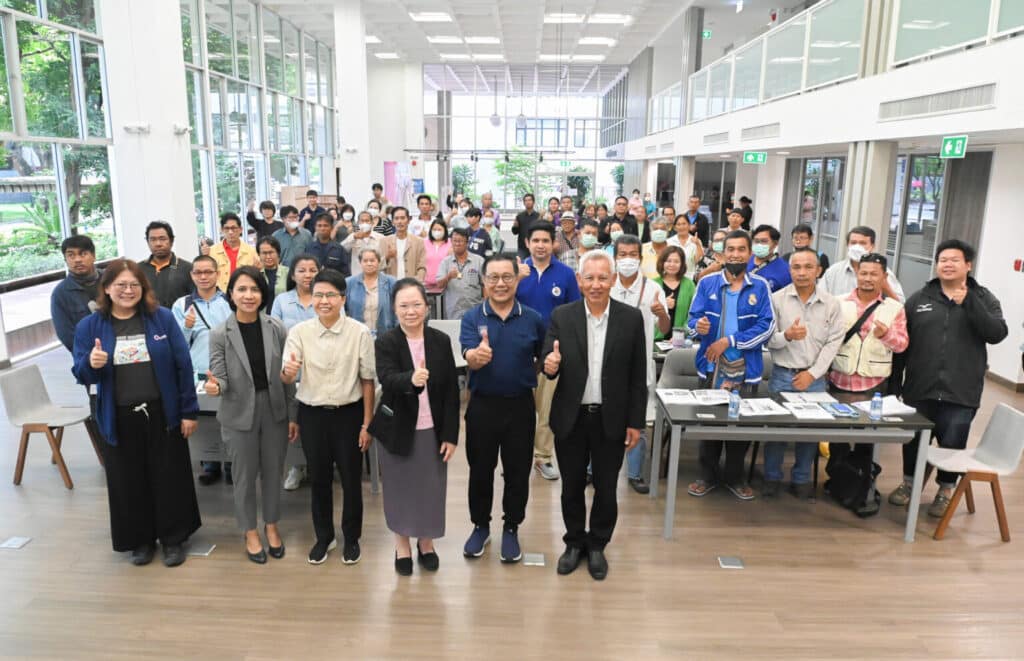
Urban Studies Lab: Independent Research Center for Urban and Community Development — Forum on Housing Data and Policy
On 15 September 2025, the Urban Studies Lab, an independent research center for urban and community development under the Faculty of Architecture, Chulalongkorn University, hosted a forum titled “Driving Housing Data and Policy” at ACUA Co-Working Space, Faculty of Architecture. The forum presented data analyses and policy recommendations addressing urban housing challenges in Thailand, joined by representatives from public agencies, researchers, and urban development experts.
The research revealed that certain households spend over 30–40% of their income on housing, and when combined with rising transportation costs due to affordable housing being located farther from city centers, the financial burden significantly impacts low-income earners and young workers.
Surveys conducted in four pilot provinces—Bangkok, Khon Kaen, Chiang Mai, and Songkhla—showed similar patterns: high demand for affordable housing near employment areas but limited supply, and fragmented government housing databases.
To address these issues, the Lab proposed a three-dimensional approach:
- Developing tools to measure neighborhood-level housing impacts and realities.
- Establishing mechanisms to improve housing accessibility.
- Formulating long-term urban strategies to achieve a truly inclusive housing system.
The forum featured key policymakers and experts, including representatives from the National Housing Authority, Community Organizations Development Institute (CODI), the National Economic and Social Development Council (NESDC), Chulalongkorn University faculty, and independent researchers.
Dr. Pongpisit Huyakorn from Urban Studies Lab emphasized:
“Without a robust and interconnected housing database, policymaking cannot effectively address the root causes of housing problems.”
Assoc. Prof. Dr. Busara Povatong from the Faculty of Architecture added:
“Addressing housing issues requires long-term commitment and consistent effort in three main areas:
(1) Identifying the most critical urban issues rather than tackling everything at once;
(2) Utilizing existing mechanisms instead of creating new ones to reduce costs and enhance efficiency; and
(3) Integrating housing strategies into municipal plans and national frameworks to ensure alignment with Thailand’s 20-Year National Strategy.”
[ https://www.sanook.com/news/9847534/ ]
By
- Faculty of Architecture, Chulalongkorn University
- College of Population Studies, Chulalongkorn University
Others

